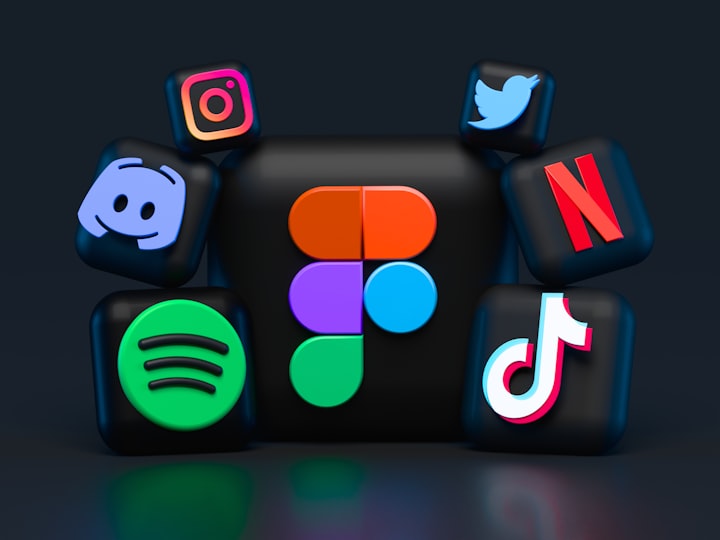
Introduction to Social Media and Mental Health:
Social media has become an integral part of our daily lives, with billions of people around the world using platforms like Facebook, Twitter, Instagram, and TikTok to connect with others, share their thoughts and experiences, and consume information. While social media has many benefits, such as enabling us to stay in touch with friends and family, discover new ideas, and express ourselves creatively, it also has potential risks that can impact our mental health.
In this article, we will explore the impact of social media on mental health, including the risks and benefits, and provide tips on how to manage social media use for better mental health.
The Risks of Social Media on Mental Health:
While social media can provide us with many benefits, it can also have negative effects on our mental health. Here are some of the risks associated with social media use:
- Cyberbullying: Social media can provide a platform for cyberbullying, where individuals can be subjected to harassment, abuse, and negative comments. This can cause emotional distress and negatively impact mental health.
- Social comparison: Social media can create an environment where individuals constantly compare themselves to others, leading to feelings of inadequacy, low self-esteem, and depression.
- Addiction: Social media use can become addictive, leading to excessive use and interference with daily life, resulting in anxiety and depression.
- Fear of missing out (FOMO): Social media can create a fear of missing out on events or experiences, leading to anxiety and stress.
- Sleep disruption: Social media use can disrupt sleep patterns, leading to fatigue, irritability, and mood swings.
The Benefits of Social Media on Mental Health:
Despite the potential risks, social media can also have positive effects on mental health. Here are some of the benefits associated with social media use:
- Social support: Social media can provide a sense of social support, where individuals can connect with others, share experiences, and receive emotional support.
- Access to information: Social media can provide access to information on mental health, resources, and support networks, which can improve mental health outcomes.
- Community building: Social media can create communities of individuals who share similar interests and experiences, providing a sense of belonging and connection.
- Positive reinforcement: Social media can provide positive reinforcement, such as likes, comments, and shares, which can boost self-esteem and promote positive mental health.
How to Manage Social Media Use for Better Mental Health:
To manage social media use for better mental health, here are some tips:
- Set boundaries: Set limits on social media use, such as specific times of day or duration of use.
- Be mindful: Be mindful of social media use, and how it impacts your mental health. Take breaks if needed.
- Be selective: Choose social media platforms that align with your interests and goals, and avoid those that promote negative comparison or unrealistic expectations.
- Seek support: Seek social support, such as from friends, family, or mental health professionals, when needed.
- Prioritize self-care: Engage in self-care activities, such as exercise, meditation, or hobbies, to promote mental health and well-being.
Conclusion:
In conclusion, social media has both risks and benefits when it comes to mental health. While it can provide a sense of social support, access to information, and positive reinforcement, it can also lead to cyberbullying, social comparison, addiction, fear of missing out, and sleep disruption. Therefore, it is important to manage social media use to ensure that the benefits outweigh the risks.
One way to do this is by setting boundaries on social media use, such as specific times of day or duration of use. Being mindful of social media use and how it impacts mental health is also important, and taking breaks when needed can be helpful. Choosing social media platforms that align with one's interests and goals and avoiding those that promote negative comparison or unrealistic expectations can also be beneficial.
Seeking social support when needed and prioritizing self-care activities, such as exercise, meditation, or hobbies, can promote mental health and well-being. It is also important to recognize that social media is just one aspect of our lives and not to rely solely on it for social connection or validation.
Furthermore, it is crucial for social media companies to take responsibility for the potential negative impacts of their platforms on mental health. This includes implementing policies to prevent cyberbullying, promoting positive interactions, and limiting addictive features. It is also important for mental health professionals to be aware of the potential impact of social media on their clients and to incorporate discussions about social media use into their treatment plans.
Overall, while social media can have a negative impact on mental health, it can also have many benefits. It is important to manage social media use to ensure that the benefits outweigh the risks and to prioritize self-care and social support. By doing so, we can harness the power of social media for positive mental health outcomes.
Hope you liked it!
About the Creator
Mindings
"Hi there! I'm Mindings, a tech enthusiast and blogger with a passion for all things digital. and other stuff, Thanks for stopping by, and I hope you enjoy reading my blog!"
Reader insights
Outstanding
Excellent work. Looking forward to reading more!
Top insights
Easy to read and follow
Well-structured & engaging content
Eye opening
Niche topic & fresh perspectives
Heartfelt and relatable
The story invoked strong personal emotions
Masterful proofreading
Zero grammar & spelling mistakes
On-point and relevant
Writing reflected the title & theme






Comments
There are no comments for this story
Be the first to respond and start the conversation.